Saul O. Sidore Memorial Foundation
The Saul O. Sidore Memorial Foundation and the Sidore Series are named in memory of the Saul O. Sidore, who was born in New York City in 1907, the son of immigrants. He became involved in the knitting industry in New York in 1931 and moved his business to Manchester, New Hampshire, in 1940, where it was known as Brookshire Knitting Mills and later as Pandora. He died in 1964, after leading the company in a major growth effort that brought employment in Manchester to more than 600 people.
Sidore’s success was based on the theory that following ethical principles is the only sure way to build a business and provide security for its employees. He pioneered a profit sharing-plan, instituted a pension plan, was the first in New Hampshire to employ an industrial psychologist, insured hospitalization benefits for his employees, and founded a scholarship loan fund to send employees’ children to college. He was a member of the New Hampshire Advisory Committee to the U.S. Commission on Civil Rights and was a driving force for the ideals of humanity and brotherhood in Manchester, the state of New Hampshire, and the nation.
The foundation and the series have been established to support campus presentations by speakers on emerging ideas and to enhance faculty efforts to challenge students and the wider community to participate in dialogue around original, provocative, and sometimes controversial issues facing society.
♦♦♦♦♦♦♦♦♦♦♦♦♦♦♦♦♦♦♦♦♦♦♦♦♦♦♦♦♦♦RECENT LECTURES♦♦♦♦♦♦♦♦♦♦♦♦♦♦♦♦♦♦♦♦♦♦♦♦♦♦♦♦♦
 Tom Ehrlich
Tom Ehrlich
“A Political Imperative”
Tuesday, April 9, 2019 at 7 p.m.
Norma Walker Hall, Alumni Center
In a time of deep crisis in American Democracy, Tom Ehrlich will discuss how and why college students must be actively engaged in politics and public policy issues.
Tom Ehrlich is a consulting professor at the Stanford University Graduate School of Education. Dr. Ehrlich has served as president of Indiana University, provost of the University of Pennsylvania, dean of the Stanford Law School, and senior scholar at the Carnegie Foundation for the Advancement of Teaching. He is author, coauthor, or editor of 14 books that address topics including international law, education, and public service
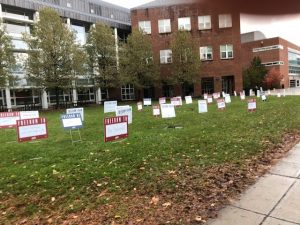 Four Freedoms Public Art Display
Four Freedoms Public Art Display
Monday, October 29, 2018 • 8 a.m. – 5 p.m.
Student Center Lawn
Members of the Keene State College Community will be invited to participate in a public art project on campus consisting of handmade yard signs as part of the For Freedoms 50 State Initiative for civic engagement.
Christina Seeley, Wednesday, Oct 24th, 2018 at 7:30pm
Christina Seely’s photographic practice stretches into the fields of science, design, and architecture and culminates in a range of visual and collaborative translations. Her work has been exhibited nationally and internationally and is featured in many public and private collections including; The Museum of Contemporary Photography, The West Collection and The Walker Art Center. She has been an Artist
in Residence at the Headlands Center for the Arts in California, and Lightwork in Syracuse, NY, a Fellow at the MacDowell Colony in New Hampshire, a participant on the Arctic Circle Program, and a recipient of a year-long Public Arts Commission from the city of San Francisco. She received a 2014 Smithsonian Artist Research Fellowship and her first monograph Lux, was co-published in 2015 by Radius Books and the Museum
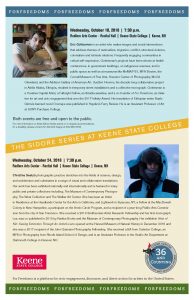
ann Photography Fellowship. She received a BA from Carleton College, an MFA in Photography from Rhode Island School of Design, and is an Assistant Professor in the Studio Art Department at Dartmouth College in Hanover NH.
of Contemporary Photography. Her exhibition Next of Kin: Seeing Extinction Through An Artist’s Lens opened at the Harvard Museum of Natural History in December 2016 and she was a 2017 recipient of the John Gutm
For Freedoms
Eric Gottesman, Wednesday, Oct 10th, 2018 at 7:30pm
Eric Gottesman is an artist who makes images and social interventions that address themes of nationalism, migration, conflict, structural violence, colonialism and intimate relations. Frequently engaging communities in critical self-expression, Gottesman’s projects have been shown at health conferences, in government buildings, on indigenous reserves, and in public space as well as at museums like MoMA/PS1, MFA Boston, the Cornell Museum of Fine Arts, Houston Center of Photography, MoCA Cleveland, and the Addison Gallery of American Art. Sudden Flowers, his decade-long collaborative project in Addis Ab
aba, Ethiopia, resulted in temporary street installations and a collective monograph. Gottesman is a Creative Capital Artist, a Fulbright Fellow, an Artadia awardee, and a co-founder of For Freedoms,
Ayub Nuri
March 19, 2018
“The Struggle to Develop a Kurdish Independent State”
 Kurds of Iraq attempted to break away from Baghdad and form an independent state manifested themselves in a popular referendum on September 25, 2017. And how, after two solid decades of alliance with the United States and the West, the Kurds were betrayed and abandoned after the referendum and seem poised to be crushed by the Iraqi army. Despite the setbacks of 2017, for Kurds, it’s unlikely that their aspirations for statehood have died.
Kurds of Iraq attempted to break away from Baghdad and form an independent state manifested themselves in a popular referendum on September 25, 2017. And how, after two solid decades of alliance with the United States and the West, the Kurds were betrayed and abandoned after the referendum and seem poised to be crushed by the Iraqi army. Despite the setbacks of 2017, for Kurds, it’s unlikely that their aspirations for statehood have died.
Ayub Nuri is a Canadian-Kurdish journalist. He has worked as a war correspondent and political writer since 2003, covering the Iraq war, the war against ISIS in Mosul and the Kurdish independence movement. He has a BA in global politics and a masters degree in journalism. He was born and raised in Halabja, Iraqi Kurdistan. His work has appeared in the New York Times, Time magazine, BBC, Washington Post, Toronto Star, Rudaw Media Network. He was writer-in-residence at Swarthmore College, Pennsylvania and George Brown College in Toronto. He is the author of Being Kurdish in a Hostile World, 2017.
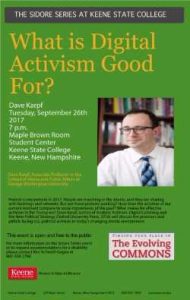
David Karpf
September 26, 2017
“What is Digital Activism Good for?
Does it seem that the internet is just a place to share cat videos and rant about politics? What if the internet could be a place to create social change? On Tuesday September 26th at 7 p.m. in the Mabel Brown Room, we are welcoming David Karpf for his lecture titled “ What is Digital Activism Good For?” as a part of the Sidore Lecture Series. This lecture will cover the promises and pitfalls facing U.S. political activists in today’s changing media environment during controversial Trump era.
Dave Karpf is an Associate Professor in the school of Media and Public Affairs at George Washington University. In addition to his academic portfolio, He is a longtime volunteer leader with the Sierra Club. He has been a member of that organization since 1995, served as National Director of their student-run arm in 1999, and served on their national Board of Directors from 2004-2010. His most recent book is titled Analytic Activism (Oxford Press).
Dr. Barry Clark
Tuesday, October 25, 2016
“Economic Inequality: Causes, Consequences, and Solutions”
 Dr. Barry Clark examines the latest research on income and wealth inequality. The statistics reveal a dramatic increase in inequality over the past three decades, but the causes – and consequences – of this trend remain in dispute. Although some inequality is essential to a healthy economy, inequality may have become so excessive that, in the words of President Obama, it poses “a fundamental threat to the American dream, our way of life, and what we stand for around the globe.” If the degree of inequality has grown beyond a sustainable level, what can be done to achieve a more just society without jeopardizing the prosperity supporting widespread opportunities for social mobility?
Dr. Barry Clark examines the latest research on income and wealth inequality. The statistics reveal a dramatic increase in inequality over the past three decades, but the causes – and consequences – of this trend remain in dispute. Although some inequality is essential to a healthy economy, inequality may have become so excessive that, in the words of President Obama, it poses “a fundamental threat to the American dream, our way of life, and what we stand for around the globe.” If the degree of inequality has grown beyond a sustainable level, what can be done to achieve a more just society without jeopardizing the prosperity supporting widespread opportunities for social mobility?
Curtis Chen
Tuesday, October 4, 2016
“Tested”
 The gap in opportunities for different races in America remains extreme. Nowhere is this more evident than our nation’s top public schools. This documentary follows a dozen raciallyand socio-economically diverse 8th graders as they fight for a seat at one of these schools. Their only way in: to ace a single standardized test.Testedexplores such issues as access to a high-quality public education, affirmative action, and the model-minority myth.
The gap in opportunities for different races in America remains extreme. Nowhere is this more evident than our nation’s top public schools. This documentary follows a dozen raciallyand socio-economically diverse 8th graders as they fight for a seat at one of these schools. Their only way in: to ace a single standardized test.Testedexplores such issues as access to a high-quality public education, affirmative action, and the model-minority myth.
Ariel Jacobson
Tuesday, March 31, 2015
“Fighting for Equal Wages for Tipped Workers”
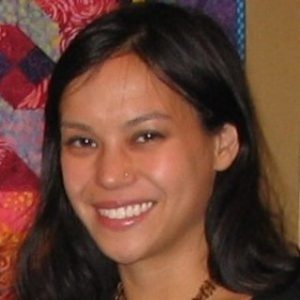 ROC United was launched in January 2008 based on calls for support from around the country.
ROC United was launched in January 2008 based on calls for support from around the country.
Most restaurant workers earn the bulk of their income through tips. With the federal tipped minimum wage being $2.13 an hour and lower than the regular minimum wage in most states, their base pay results in $0 paychecks. Although some restaurant workers do make great money living off tips, they are the exception. © ROC United
Ariel Jacobson will be discussing the facts above as well as much more! For more information about ROC United please visit http://rocunited.org/ .
Richard Rubin
Wednesday, September 17, 2014
“The Last of the Doughboys voices from the ‘War to End All Wars'”

Richard Rubin is author of several books and a contributor to The Atlantic Monthly and The New York Times Magazine, among other publications. His most recent book, The Last of the Doughboys, is a conversational history of America’s experience in World War I, as recalled by its last surviving veterans.
Sarah Shourd
Tuesday, September 23, 2014
“From Political Hostage to Prisoner Rights Advocate”
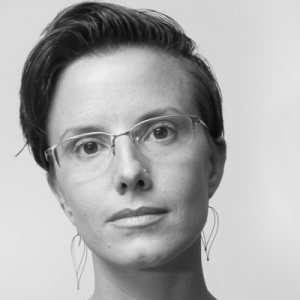 From 2009 to 2010 Sarah Shourd was held as a political hostage by the Iranian government, captured with her two friends while hiking in semi-autonomous Iraqi Kurdistan and imprisoned—without due process or any evidence shown against her—for 410 days of solitary, incommunicado detention. In this talk Shourd will tell stories of resistance, survival and political intrigue: from clandestine encounters with other prisoners, to the visit their mothers were granted to Tehran, her appearance on Oprah days after her “compassionate” release and subsequent meetings with figures such as Hilary Clinton, President Obama, Actor Sean Penn, Boxer Muhammad Ali and President Ahmadinejad himself. Since her ordeal, Sarah has gone on to co-author a memoir, A Sliver of Light: Three Americans Imprisoned in Iran, and to speak out about a wide range of human and prisoner rights issues, focusing on the widespread use of prolonged solitary confinement in US prisons.
From 2009 to 2010 Sarah Shourd was held as a political hostage by the Iranian government, captured with her two friends while hiking in semi-autonomous Iraqi Kurdistan and imprisoned—without due process or any evidence shown against her—for 410 days of solitary, incommunicado detention. In this talk Shourd will tell stories of resistance, survival and political intrigue: from clandestine encounters with other prisoners, to the visit their mothers were granted to Tehran, her appearance on Oprah days after her “compassionate” release and subsequent meetings with figures such as Hilary Clinton, President Obama, Actor Sean Penn, Boxer Muhammad Ali and President Ahmadinejad himself. Since her ordeal, Sarah has gone on to co-author a memoir, A Sliver of Light: Three Americans Imprisoned in Iran, and to speak out about a wide range of human and prisoner rights issues, focusing on the widespread use of prolonged solitary confinement in US prisons.
Jay Walljasper
Tuesday, April 15, 2014
“The (Re)Discovery of the Commons: A Path Toward a Greener, More Equitable and Happier World”
The commons is a new use of an old word, meaning “what we share”—and it offers fresh hope for a saner, safer, more enjoyable future. The commons refers to a wealth of valuable 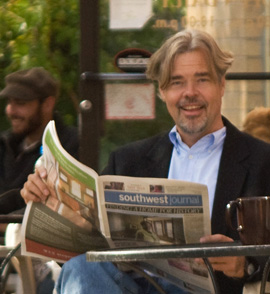 assets that belong to everyone, ranging from clean air to wildlife preserves; from the judicial system to the Internet.
assets that belong to everyone, ranging from clean air to wildlife preserves; from the judicial system to the Internet.
Some are bestowed to us by nature; others are the product of cooperative human creativity. Anyone can use the commons, so long as there is enough left for everyone else.
Jay Walljasper is editor of Commons Magazine at OnTheCommons.org and Senior Fellow at On the Commons. He writes, speaks, and consults regularly on how new ideas in urban planning, economic development, tourism, sustainability, and the commons can improve our lives and communities. He is the author of All That We Share: A Field Guide to the Commons and The Great Neighborhood Book: A Do-It-Yourself Guide to Placemaking (with Project for Public Spaces). He was formerly editor of Utne Reader magazine and a contributing editor at National Geographic Traveler.
Billy Strean Ph.D.
Monday, April 15, 2013
“Victory of the Commons? Community, Hospitality Intelligence, and Exhilarated Learning”
 As rational as self-interest may be, it can destroy the group’s long-term best interests. Preserving the greater good and promoting the heart of higher education can be accomplished by understanding “community” as an ontological reality, an epistemological necessity, a pedagogical asset, and an ethical corrective. As individuals, we can cultivate “hospitality intelligence,” a set of attributes characterized by loving heart, gentle spirit, respectful attitude, and open arms. When applied to a learning environment, the cultivation of these attitudes and practices forms the basis for human connection, one of the cornerstones of “Exhilarated Learning.”
As rational as self-interest may be, it can destroy the group’s long-term best interests. Preserving the greater good and promoting the heart of higher education can be accomplished by understanding “community” as an ontological reality, an epistemological necessity, a pedagogical asset, and an ethical corrective. As individuals, we can cultivate “hospitality intelligence,” a set of attributes characterized by loving heart, gentle spirit, respectful attitude, and open arms. When applied to a learning environment, the cultivation of these attitudes and practices forms the basis for human connection, one of the cornerstones of “Exhilarated Learning.”
Robin Hahnel
Tuesday, October 8, 2013
“Participatory Economics and the Commons”
What is the commons? What should the commons include? What responsibilities do we, the present generation, have as stewards to protect the commons for future generations? Who should decide how the commons is used? How should they go about making those decisions? Who should the commons benefit? Professor Hahnel will explore how the model of a “participatory economy” challenges much of conventional thinking about the commons.
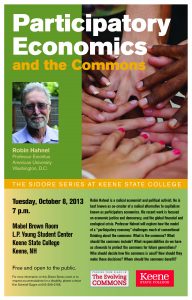
Robin Hahnel is Professor Emeritus at American University in Washington DC where he taught economics for over thirty years. He has also taught at the University of Maryland at College Park, the Catholic University in Peru, The University of Havana in Cuba, Manchester University in England, and most recently at Lewis and Clark College and Portland State University in Portland Oregon. Together with Michael Albert he is co-creator of the “model” of a “participatory economy.” His most recent books are Economic Justice and Democracy: From Competition to Cooperation (Routledge, 2005), Green Economics: Confronting the Ecological Crisis (M.E. Sharpe, 2011), and For the People, By the People: The Case for a Participatory Economy (Soapbox Press, 2012.)
Nancy Sherman
Friday, November 30, 2012
“The Untold War: The Moral Toll of War”
My introduction to the psyche of the soldier, in a sense, goes back to my father and my childhood. My dad was a WW II vet who never talked about “his” war, though he carried his dogtags on his keychain for 65 years. The war never left him; he took it to the grave; and he always felt that his burden was private. I suspect I always felt that the burden ought to be shared, or at least, that I ought to understand it better.
The chance cam e when I was appointed the first Distinguished Chair in Ethics at the U.S. Naval Academy in the mid-nineties. I had been an academic in ethics for most of my career, focused on ethics and the emotions, in ancient and modern philosophy. I also had a background and research training in psychoanalysis. For the first time in my life I became a civilian in a military world, and I began to understand better the secret world of my dad. I started teaching and writing about the moral challenges of going to war and returning home, and have been immersed in that research ever since. The issues couldn’t be more urgent for a nation now fighting wars on two fronts for almost a decade.
e when I was appointed the first Distinguished Chair in Ethics at the U.S. Naval Academy in the mid-nineties. I had been an academic in ethics for most of my career, focused on ethics and the emotions, in ancient and modern philosophy. I also had a background and research training in psychoanalysis. For the first time in my life I became a civilian in a military world, and I began to understand better the secret world of my dad. I started teaching and writing about the moral challenges of going to war and returning home, and have been immersed in that research ever since. The issues couldn’t be more urgent for a nation now fighting wars on two fronts for almost a decade.
The Untold War is my best effort at allowing soldiers to open up their hearts and tell their stories. I have listened to those stories with the ear of a philosopher and psychoanalyst, but also with the ear of a daughter, who always felt that she needed to understand more about what her father went through. And I have analyzed those stories in language that steps outside the academy—in terms my dad would have understood. I talk about the visible and invisible wounds of war; posttraumatic stress disorder (PTSD) and resilience; military suicide and its prevention; military honor, guilt, and shame. Military families need to know that we who do not have loved ones serving are doing our best to understand and help those who do.
Officially, I am a distinguished University Professor in Philosophy at Georgetown and an affiliate at the Kennedy Institute of Ethics. I also teach some semesters at Georgetown University Law Center. I taught at Yale for seven years before coming to Georgetown.
I spend much of my free time outside. I run most days, swim in an outdoor pool a few times a week, and hike and bike on occasion. Here I take lessons from my grown children: My daughter Kala was a competitive swimmer at Dartmouth, and my son Jonathan has cycled across the country for Habitat for Humanity with a Yale group; he also led cycling tours in Europe.
Christopher Cherry
Monday, April 16, 2012
“China’s Transition to E-Bikes and E-Cars and what it means for Environmental and Public Health”

Dr. Cherry received his Ph.D. from the University of California Berkeley, in Civil and Environmental Engineering-Transportation. He also has a Minor in City and Regional Planning and Economics. For his dissertation he chose the topic: Environmental, Safety and Mobility Implications of Electric Two-Wheeler Use In China. He completed both his Masters and Bachelors of Science in Civil Engineering-Transportation from the University of Arizona.
Dr. Cherry’s research interest areas include: Transportation Needs of Rapidly Developing Countries-specifically China, Multimodal Transportation Planning and Operations, Public Transportation Systems, Travel Behavior and Demand, Transportation Economics, Transportation and the Environment and Transit Security.
Dr. Cherry has published articles on topics including lead emissions from solar photovoltaic energy systems in China and India, subway station design and the lessons learned from case studies of contemporary terrorism incidents, planning for the Bay area regional express bus service, systems level approaches to sustainable urban arterial revitalization, the development of duration models to determine rolling fleet size, designing map based transit itinerary planners and analyzing freeway improvements for express bus service.
Dr. Stephanie Kaza
Wednesday, March 23, 2011
“Embracing the Deep View: Skillful Means on the Path to Sustainability”
 We face environmental concerns with sober awareness, recognizing the political, economic and social constraints that limit our actions. Lifestyle change and institutional commitment are only part of the path to sustainability. We must also consider the ethics and values behind our choices to find an appropriate moral compass for this work.
We face environmental concerns with sober awareness, recognizing the political, economic and social constraints that limit our actions. Lifestyle change and institutional commitment are only part of the path to sustainability. We must also consider the ethics and values behind our choices to find an appropriate moral compass for this work.
Dr. Paul Gorski
Thursday, March 25, 2010
“Beyond the ‘Culture of Poverty’ Myth: Creating Equitable Classrooms and Schools”
 Decades of social science research demonstrate that low-income people share no consistent and predictable culture, but the “culture of poverty” myth persists. Based almost entirely upon false stereotypes, this approach perpetuates the very inequities it seeks to eliminate. A more authentic approach to educational equity requires a careful look at educational systems and practices that deny low-income families opportunities that their wealthier peers take for granted. In this presentation, Dr. Gorski will explore those systems and practices and discuss strategies for eliminating economic injustice from our classrooms, schools, and society.
Decades of social science research demonstrate that low-income people share no consistent and predictable culture, but the “culture of poverty” myth persists. Based almost entirely upon false stereotypes, this approach perpetuates the very inequities it seeks to eliminate. A more authentic approach to educational equity requires a careful look at educational systems and practices that deny low-income families opportunities that their wealthier peers take for granted. In this presentation, Dr. Gorski will explore those systems and practices and discuss strategies for eliminating economic injustice from our classrooms, schools, and society.
Dr. Gorski teaches at George Mason University’s New Century College and has been a consultant for 10 years, conducting workshops and providing guidance to schools and community organizations committed to equity and diversity. He created and continues to maintain the Multicultural Pavilion (edchange.org/multicultural/index.html), a website focused on multicultural education. Gorski is past president of the National Association for Multicultural Education; the associate technology editor for Multicultural Perspectives; and an associate editor for Multicultural Education. He publishes and presents in education-focused forums on topics ranging from whiteness and racism studies to multicultural curriculum transformation.
Dr. Geoffrey Giles
Monday, February 1, 2010
“The Gay Threat and the Nazi Imagination”
 During World War II-era Nazi Germany and the Holocaust, thousands of homosexuals, primarily gay men, perished in concentration camps, along with millions of Jews and other victims, including Roma (Gypsies), Poles, Soviet prisoners of war, Jehovah’s Witnesses, and the handicapped. Dr. Giles will look at what happened to homosexuals in Nazi Germany and explore what we can learn from this history with regard to homophobia in our culture today.
During World War II-era Nazi Germany and the Holocaust, thousands of homosexuals, primarily gay men, perished in concentration camps, along with millions of Jews and other victims, including Roma (Gypsies), Poles, Soviet prisoners of war, Jehovah’s Witnesses, and the handicapped. Dr. Giles will look at what happened to homosexuals in Nazi Germany and explore what we can learn from this history with regard to homophobia in our culture today.
Geoffrey Giles received his Ph.D. in history from the University of Cambridge. Following four years as a postdoctoral fellow in a Yale University think tank, he has been a professor in the History Department at the University of Florida since 1978, where he specializes in German history. His book, Students and National Socialism in Germany, published by Princeton University Press, examines the attempts of the Nazi college students’ association to indoctrinate undergraduates. Dr. Giles continues to publish articles and book chapters on the history of education in Nazi Germany. Another of his specialties, the social history of alcohol in Germany, grew out of his work on students. Dr. Geoffrey Giles was one of the major advisors on the United States Holocaust Memorial Museum’s traveling exhibition, Nazi Persecution of Homosexuals.
Stephen R. Shalom, Ph.D.
Monday, April 27, 2009
“Can We End the Unending Conflict?: Reflections on Israel and Palestine”
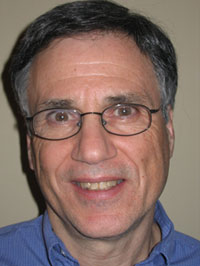 Professor Shalom has written and spoken widely on U.S. foreign policy and on the Middle East. Among his books are Imperial Alibis: Rationalizing U.S. Intervention after the Cold War andWhich Side Are You on? An Introduction to Politics. He is the editor of a dialogue between Noam Chomsky and Gilbert Achcar, Perilous Power: the Middle East and U.S. Foreign Policy. He serves on the editorial board of New Politics and is a regular contributor to Z Magazine and ZNet. He was in Jordan, Syria, and Lebanon this past year.
Professor Shalom has written and spoken widely on U.S. foreign policy and on the Middle East. Among his books are Imperial Alibis: Rationalizing U.S. Intervention after the Cold War andWhich Side Are You on? An Introduction to Politics. He is the editor of a dialogue between Noam Chomsky and Gilbert Achcar, Perilous Power: the Middle East and U.S. Foreign Policy. He serves on the editorial board of New Politics and is a regular contributor to Z Magazine and ZNet. He was in Jordan, Syria, and Lebanon this past year.
Nancy Folbre
Monday, April 16, 2009
“The Political Economy of Care”
Time is not money. If anything, it is more important than money. The time we have to care for one another, especially for our children and our elderly, is more precious to us than anything else in the world. Yet we have more experience accounting for money than we do for time.
Tamara Draut
Tuesday, March 24, 2009
“Falling Behind: The Economic Challenges Confronting a New Generation and What We Can Do About It”
 amara Draut is the author of Strapped: Why America’s 20- and 30 Somethings Can’t Get Ahead and is the Vice President for Policy and Programs at Demos. He research focuses on the growing debt burdens facing low-and middle-income households, and more broadly the challenges confronting households trying to work or educate their way into the middle class.
amara Draut is the author of Strapped: Why America’s 20- and 30 Somethings Can’t Get Ahead and is the Vice President for Policy and Programs at Demos. He research focuses on the growing debt burdens facing low-and middle-income households, and more broadly the challenges confronting households trying to work or educate their way into the middle class.
Ms. Draut’s research has been covered extensively by newspapers and magazines including the New York Times, Washington Post, Newsweek, BusinessWeek, Chicago Tribune, Wall Street Journal, and USA Today. Her writing has appeared in The San Francisco Chronicle, The Boston Globe, and The Boston Review. She is a frequent television commentator and has appeared on the Today Show, ABC World News Tonight, CNN’s Lou Dobbs Tonight and Fox News.
Demos is a non-Partisan public policy and advocacy organization based in New York City. Founded in 2000, the organization works with advocates and policymakers around the country in pursuit of four overarching goals:
- a more equitable economy with widely shared prosperity and opportunity;
- a vibrant and inclusive democracy with high levels of voting and civic engagement;
- an empowered public sector that works for common good; and
- responsible U.S. engagement in an interdependent world.
John Uniak Davis
Tuesday, November 14th, 2008
“W(H)ITHER AFRICA? Development Challenges in the 21st Century”
In a number of African countries, a quarter or more of all children still do not survive to age five, and those that do have a 50 percent chance of being moderately to acutely malnourished. Women still die in childbirth at a shocking rate. Most children do not have access to a quality education, particularly beyond primary school. At least 50 percent of Africans live on less than $1 a day. Conflicts on African soil, unequal terms of trade, and crushing levels of debt exacerbate the myriad social and economic challenges.
Anwar Shaikh
Thursday, October 5th, 2008
“Globalization and the Myths of Free Trade”
Over one billion people (one-fifth of the world’s population) live on less than $1 a day. Over half a million women die each year (one per minute) from complications in pregnancy and childbirth (UNFPA.org). More than one-third of the people of Sub-Saharan African are undernourished (worldhunger.org). These horrors persist even though the resources exist toprovide adequate nutrition and health care to all of the world’s people. While economists claim that unrestricted free trade is the surest path out of poverty for the poorest of the world’s people, the gap between the wealthiest and the poorest parts of the world has exploded in recent decades of unprecedented globalization. International trade theory stops being mysterious as soon as one recognizes that real international competition works in the same way as national competition: it favors the competitively strong over the competitively weak.
Dr. Tyrone Hayes
Tuesday, March 25th, 2008
“From Silent Spring to Silent Night of Toads and Men”
 Dr. Tyrone Hayes, a professor in the department of Integrative Biology at the University of California, Berkeley, will present “From Silent Spring to Silent Night of Toads and Men” as part of the Keene State College Sidore Series on Tues., Mar. 25, at 7 p.m. in the Mabel Brown Room.
Dr. Tyrone Hayes, a professor in the department of Integrative Biology at the University of California, Berkeley, will present “From Silent Spring to Silent Night of Toads and Men” as part of the Keene State College Sidore Series on Tues., Mar. 25, at 7 p.m. in the Mabel Brown Room.
Dr. Hayes is an acclaimed endocrinologist who studies the effects of steroid hormones on the development of frogs and toads. He found that the widely used herbicide Atrazine, a potent endocrine disrupter, caused abnormalities in the sexual development of frogs and toads, hindering their ability to reproduce.
He will discuss his research and the responses of the company that had a vested interest in its outcome.
Dr. Michael Shannon, M.D., M.P.H.
Marni A. Silverstein, M.D.
Katie Lajoie, R.N., B.A., B.S.N.
Wednesday, October 17, 2007
“Childhood Lead Poisoning”
Lead is a toxic metal that can cause a range of health issues, from behavioral problems and learning disabilities to seizures and death. In the 1980s, the use of lead was phased out of gasoline and paint, but in New England, where many buildings are more than 25 years old, many of our houses may still contain lead paint. Exposure to lead usually occurs because of deteriorating lead-based paint, lead-contaminated dust (particularly from renovations), and lead-contaminated residential soil. Children 6 years old and under are most at risk because their bodies are growing quickly.
Even seemingly healthy children can have high levels of lead in their bodies. This symposium brings three experts in the field to help inform parents and community members about this issue:
 Dr. Michael Shannon will open with Healthy People 2010: Eradication of Childhood Lead Poisoning – Will the Promise Be Fulfilled? A pediatrician for more than 25 years, Dr. Shannon is chief emeritus of Emergency Services at Children’s Hospital Boston, as well as professor and chair of Pediatrics at Harvard Medical School. He is the associate director of the Children’s Hospital Pediatric Environmental Health Center at Children’s, a Pediatric Environmental Health Specialty Unit (PEHSU) serving EPA Region I, and the senior consulting toxicologist for the MA/RI Poison Control Center.
Dr. Michael Shannon will open with Healthy People 2010: Eradication of Childhood Lead Poisoning – Will the Promise Be Fulfilled? A pediatrician for more than 25 years, Dr. Shannon is chief emeritus of Emergency Services at Children’s Hospital Boston, as well as professor and chair of Pediatrics at Harvard Medical School. He is the associate director of the Children’s Hospital Pediatric Environmental Health Center at Children’s, a Pediatric Environmental Health Specialty Unit (PEHSU) serving EPA Region I, and the senior consulting toxicologist for the MA/RI Poison Control Center.
 Local pediatrician Dr. Marni A. Silverstein will follow with Lead and Your Child: What Your (Child’s) Doctor Does Want You to Know! Dr. Silverstein is a pediatrician at Cheshire Medical Center/Dartmouth-Hitchcock Keene, interacting with children and their parents on a wide range of pediatric issues. She received her bachelor’s degree in neuroscience and behavior from Wesleyan University in Middletown, Connecticut, and her Doctor of Medicine degree from the University of Massachusetts Medical School in Worcester, Massachusetts. She completed her residency training at Dartmouth Hitchcock Medical Center in Lebanon, New Hampshire. She has been in Keene since 2004.
Local pediatrician Dr. Marni A. Silverstein will follow with Lead and Your Child: What Your (Child’s) Doctor Does Want You to Know! Dr. Silverstein is a pediatrician at Cheshire Medical Center/Dartmouth-Hitchcock Keene, interacting with children and their parents on a wide range of pediatric issues. She received her bachelor’s degree in neuroscience and behavior from Wesleyan University in Middletown, Connecticut, and her Doctor of Medicine degree from the University of Massachusetts Medical School in Worcester, Massachusetts. She completed her residency training at Dartmouth Hitchcock Medical Center in Lebanon, New Hampshire. She has been in Keene since 2004.
Public health nurse Katie Lajoie will conclude with What Parents Can Do. Lajoie is a Public Health Nurse case manager in the Childhood Lead Poisoning Prevention Program of the New Hampshire Department of Health and Human Services. She has worked for the Department of Health and Human Services since 1985 and in the Childhood Lead Poisoning Prevention Program since 1990. In this role she provides counseling to parents and other members of the public about lead poisoning and its prevention; serves as a liaison between community health providers, environmental inspectors, and primary health care providers; and helps to ensure children’s care throughout the process, from case identification to case resolution.
Dr. Kenneth Hardy
Monday, April 3, 2006
” Diverse and Oppressed Families: Its About All of Us”
 Dr. Kenneth Hardy will present three lectures on Monday, April 3, and Tuesday, April 4, as part of the Sidore Series event Facing Race and Class Oppression.
Dr. Kenneth Hardy will present three lectures on Monday, April 3, and Tuesday, April 4, as part of the Sidore Series event Facing Race and Class Oppression.
Dr. Hardy is a professor in the Department of Marriage and Family Therapy at Syracuse University and a senior faculty at the Ackerman Institute for the Family. He co-authored Teens Who Hurt: Clinical Interventions to Break the Cycle of Adolescent Violence, and has appeared on the Oprah Winfrey Show, Dateline NBC, 20/20, and PBS.



